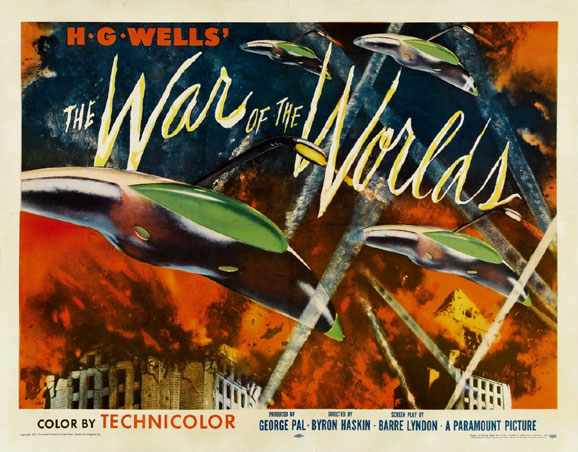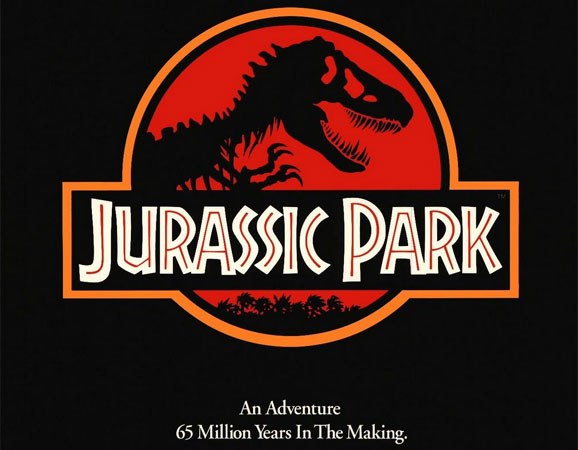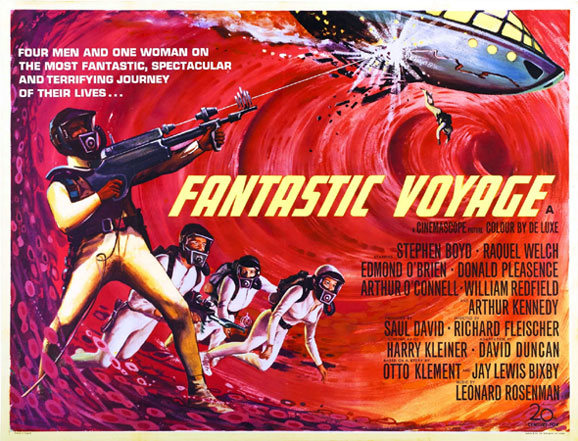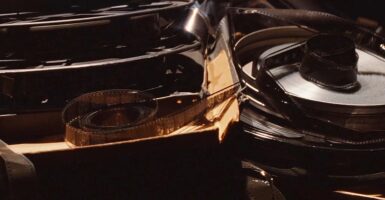The Best Sci-Fi Movies Of All Time As Chosen By Scientists
This article is more than 2 years old
The internet loves a good list. Best of lists. Worst of lists. The top 10 lists about lists about lists. We’re not immune to the appeal: it’s an easily digestible way to examine a subject, and they can be a lot of fun to write. We’ve certainly made our share of lists here at GFR, and we cover science fiction enough that we hope we can share some insights you might not have thought of, or at least make you laugh at the occasional poop joke. Still, we may have just been outclassed in the area of science fiction-related lists, because a group of scientists and engineers have gathered together and revealed their picks for the 10 Best Sci-Fi Movies of All Time. (Of all time!)
The Best Sci-Fi Movies According To Scientists


10. War of the Worlds (1953)

9. Star Wars (1977)

8. Blade Runner (1982)

7. Jurassic Park (1993)

6. WALL-E (2008)

5. Fantastic Voyage (1966)

4. Alien (1979)

3. Brazil (1985)

2. The Matrix (1999)

1. 2001: A Space Odyssey
All in all it’s a solid line-up, with a few surprises. I wouldn’t have expected Fantastic Voyage to make the cut, but then again it’s been ages since I’ve seen it so maybe my memories of it have degraded. I do have to call shenanigans on Blade Runner being that far down the list though. In my opinion it ought to be at least neck-in-neck with Alien, and there’s no way both of those films should be below The Matrix. For that matter, WALL-E seems unnaturally high compared to Blade Runner and Star Wars. Then again, this isn’t a “most influential” list, so it’s all up for debate.
Here’s what Popular Mechanics’ brain-trust of scientific experts had to say about Blade Runner, perhaps my very favorite science fiction movie of all time:
Humanlike robots can be a good thing. But in this sci-fi classic, androids called replicants get too lifelike for comfort and are banished to space colonies. If they escape and return to Earth, special cops, or blade runners, who can tell humans from replicants, hunt them down and neutralize them. Our experts give the film high marks, in part, for its humanization of advanced robots. ‘Blade Runner has probably done more to ready the world for artificial life than [any other film],’ says Daniel Novy, a scientist at MIT’s Media Lab. ‘Inspiration is important, even at the expense of some accuracy.’
Wait a minute, Mr. Novy. Are you telling me that Blade Runner’s replicants aren’t exactly what we can expect within the next few decades? I bet you’re just pissed that Batty came up with that awesome “Tears in rain” speech and you didn’t. (No wait, that’s me that feels that way.)
And what about Fantastic Voyage, the dark horse I didn’t expect? We may not be on the verge of shrinking humans down and injecting them into our bodies, but that’s just a thematic predecessor to the idea of nanotech. Here’s Popular Mechanics again:
A miniature spacecraft and crew are injected into a comatose scientist to remove a life-threatening blood clot, so that he can survive to share vital secrets. The movie’s lavishly depicted workings of the human body garnered two Academy Awards and three additional nominations — and got James Giordano thinking about medicine at the tiniest scale. Now a professor of neuroscience at Georgetown University, Giordano examines the mechanics of the brain’s response to pain. ‘The film has been a lifelong inspiration for me to work on developing neurotechnology,’ he says. David Carroll, director of the Center for Nanotechnology and Molecular Materials at Wake Forest University, says that the movie’s minuscule technology, although physically impossible, is echoed in his current work. ‘It’s exactly what we are working on: Injecting nanobots that find a cancerous tumor, tell us when they have found it, and destroy it,’ he says. Now that’s fantastic.
Another pick that seems like it should be higher on the list, here’s the entry for Ridley Scott’s classic, massively influential Alien (which thankfully hasn’t been damaged by retroactive association with Prometheus):
Sigourney Weaver proved that a woman can be a bad-ass sci-fi action hero. But our experts saw the gooey, exoskeletal villain — which uses living humans as hosts for its nasty progeny — as a pioneer of fictional biology. ‘The Alien franchise bases its xenomorph life cycle on parasitic wasps on Earth,’ says Terry Johnson, a bioengineering researcher at the University of California, Berkeley. ‘It’s a pleasure to see a film that acknowledges just how weird life can be.’
As long as nobody brings up the damned albino critter from Alien: Resurrection. Or Alien: Resurrection at all, for that matter.
You can read the rest of the list entries over at Popular Mechanics. What do you think of their picks?












